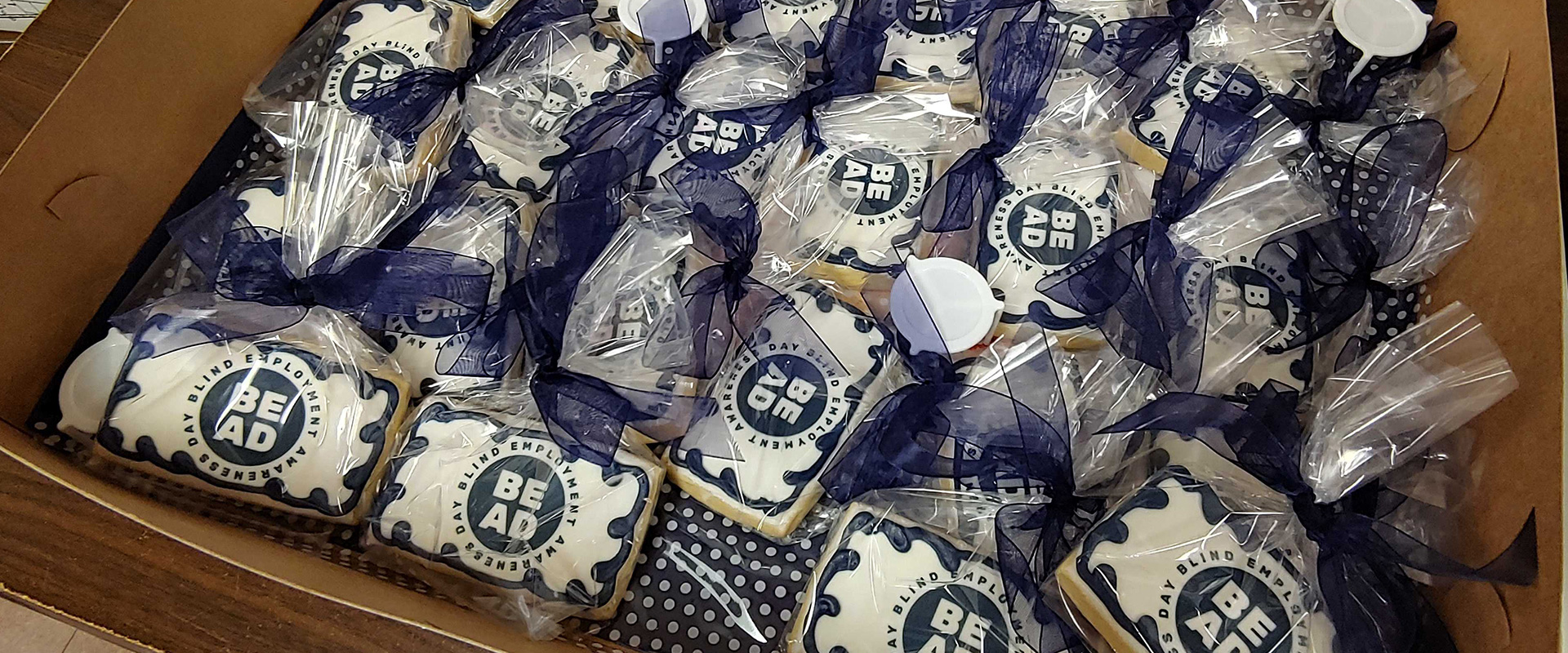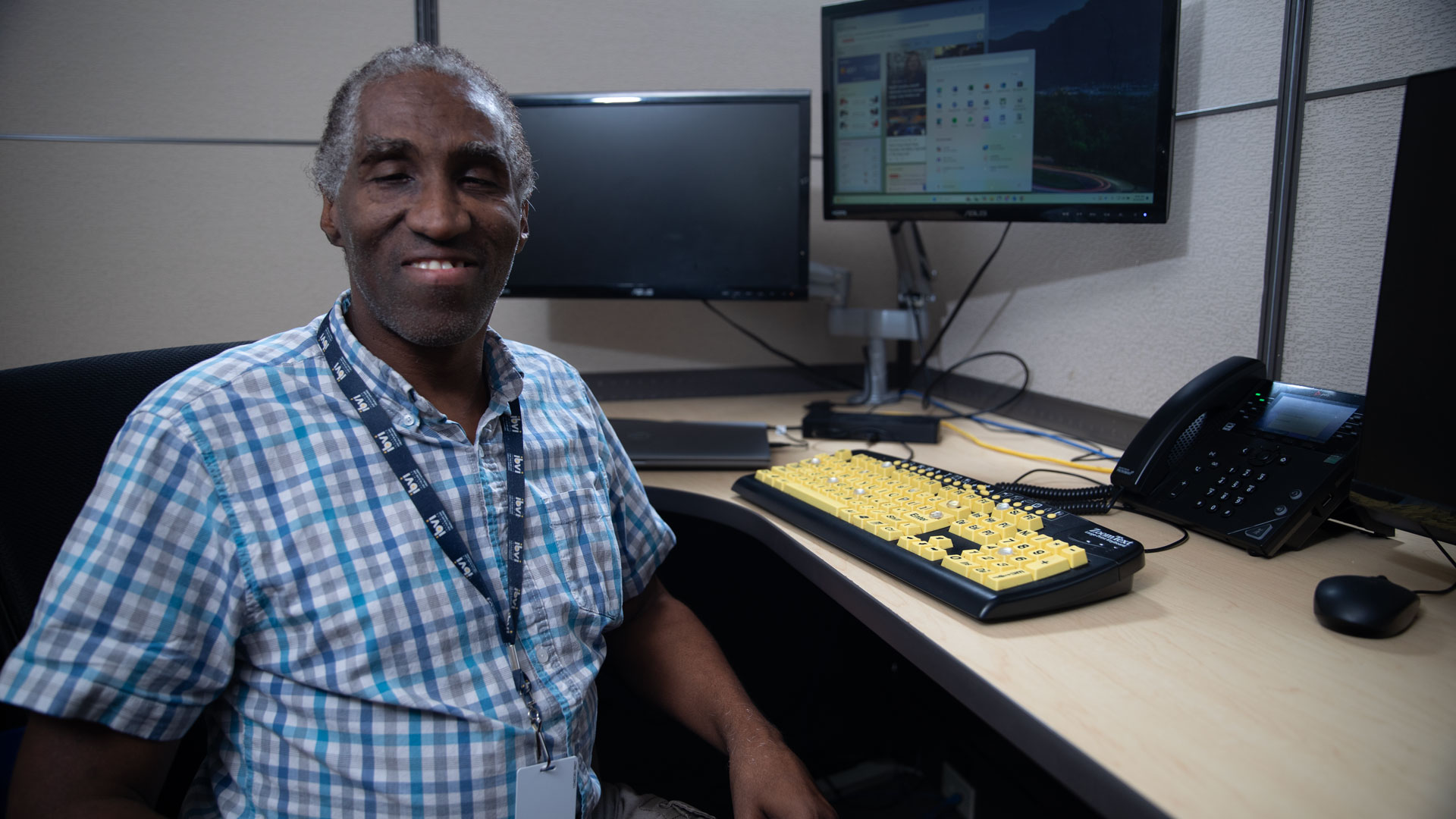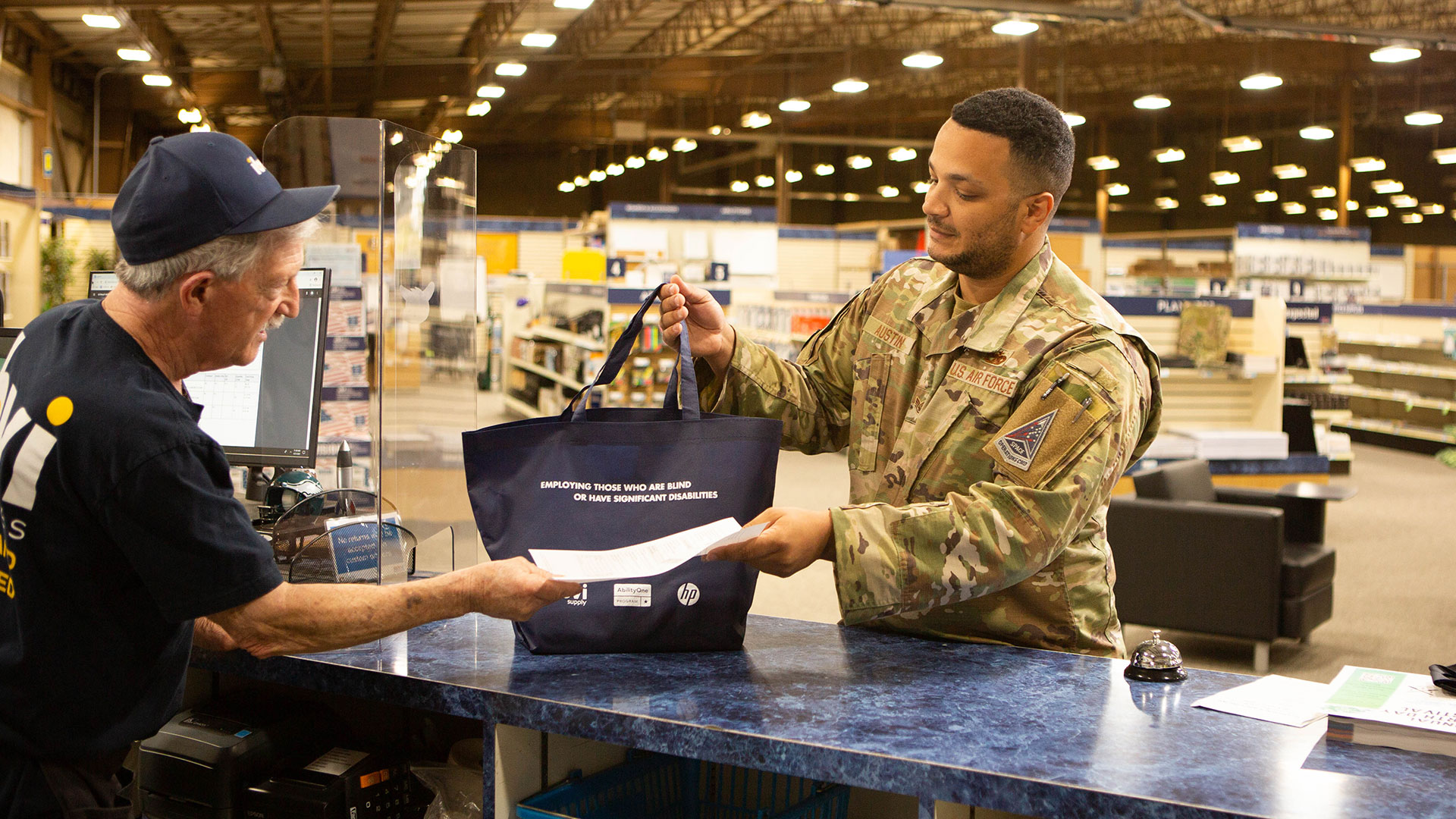When you say the facts surrounding blind employment out loud or read them on your screen—for example, there is a nearly 70% unemployment rate among the blind and visually impaired community—they start to paint a powerful picture. That’s why, since 2019, IBVI and the City of Milwaukee have celebrated Blind Employment Awareness Day (BEAD) at the beginning of May. This important awareness day came to life after realizing many people in our communities are unaware of how extraordinary the blind and visually impaired workforce is.
But this effort has moved beyond Milwaukee to our locations in both Janesville and Menomonee Falls—including a meeting with Wisconsin State Assembly member and Janesville City Council President Sue Conley to tour our operations in Wisconsin’s Park Place.
“I really didn’t know what kind of things went on here. I was aware of the organization, but I hadn’t ever toured before,” Sue said during her tour. “I think—with the right amount of thought, consideration, and the tools that folks need—anyone who has visual handicaps certainly can work in an environment like this.”
It doesn’t take a major overhaul to create employment opportunities for those who are blind or visually impaired. Some ways to get started include making small modifications to work areas and investing in the right tools, training, and support.
Many of these same sentiments were raised during the Facebook Live Panel hosted in 2020 at our West Allis location. IBVI President and CEO CJ Lange, Account and E-Commerce Specialist Alison Fortney, and Project Coordinator Jeff Young sat down to answer questions about IBVI and share their experiences working with visual impairments.
“Our mission is to employ people who are blind or visually impaired, and we do that in a variety of ways,” CJ said during the panel. “There’s a lot of work opportunities that we’ve been able to create over the years.”
These meaningful employment opportunities come from IBVI’s work through government and military contracts, including the assembly and distribution of blind-made products, a robust e-commerce system, and customized kitting and furniture services.
For Jeff and Alison, many of their answers revolved around education and awareness.
“In my experience, people think if you’re legally blind, you can’t see anything, which is totally wrong. There are varying degrees of blindness,” Alison told viewers.
Jeff agreed and had thoughts of his own about deciding to hire a person with visual impairments.
“Usually, the accommodations needed [to hire a person who is blind or visually impaired] are not that large. While a blind person is certainly capable of being a good or bad employee—just like a sighted person—we tend to have a harder time getting a job. So if we get that job, we are probably more likely to hang onto it. It comes down to finding ways to get over these misconceptions.”
To get involved and engage with us outside of BEAD, you can visit our Facebook page to learn more about raising awareness of job opportunities for individuals who are blind and visually impaired.


